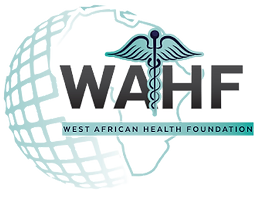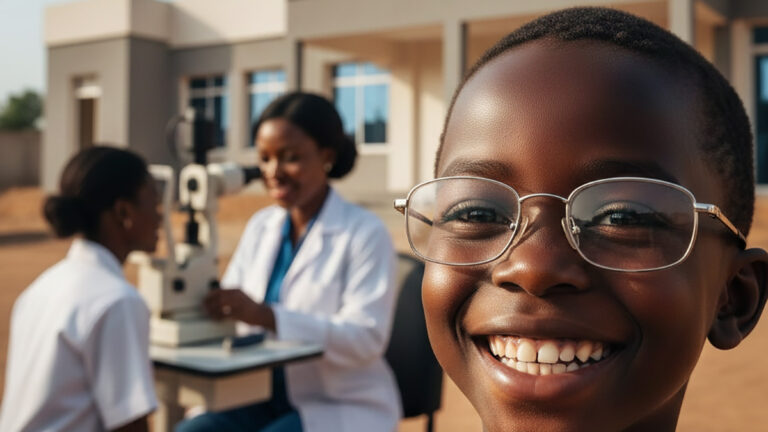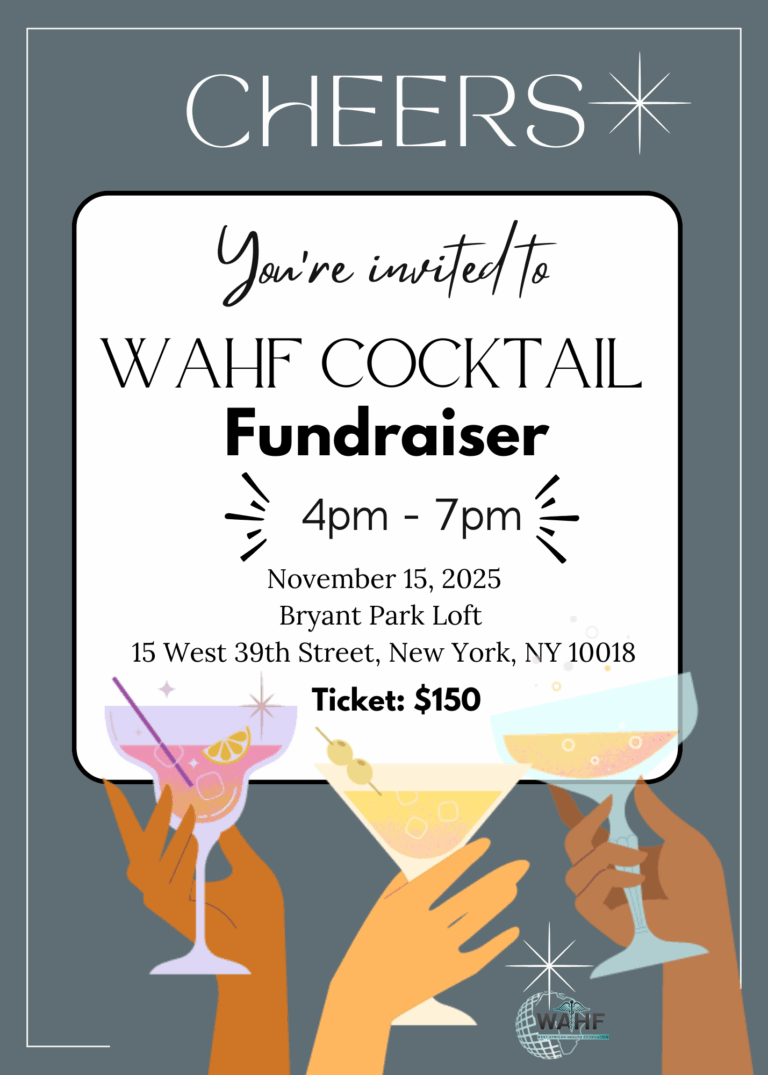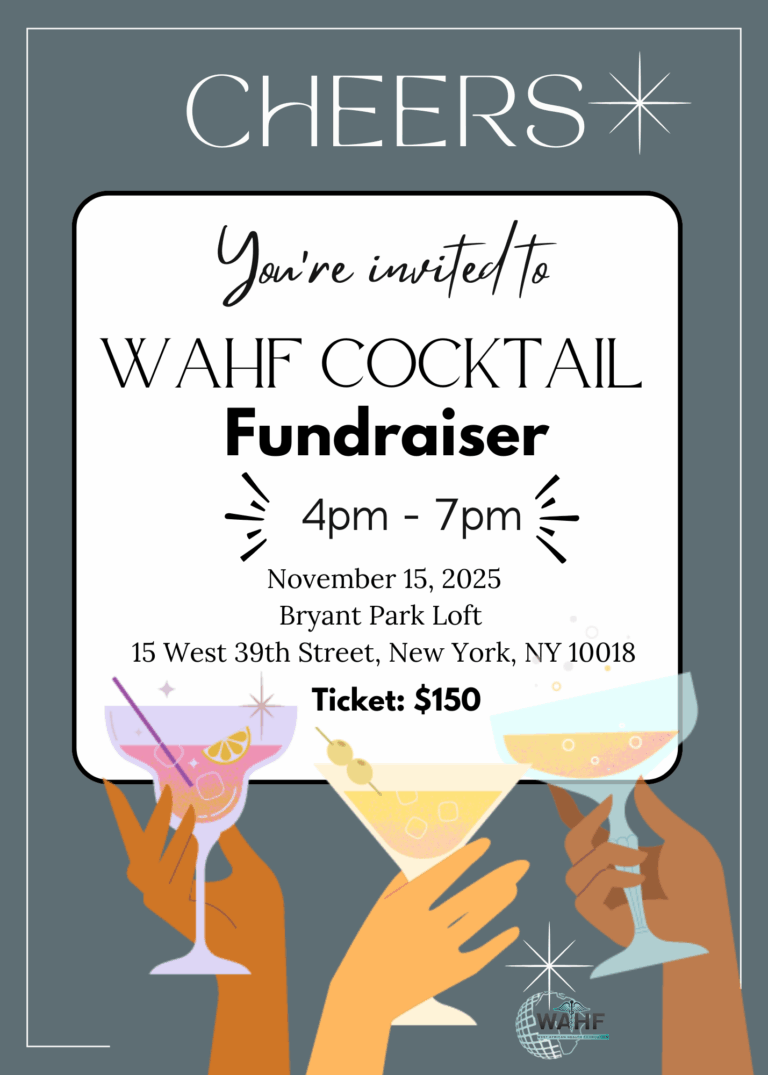World Sight Day, celebrated earlier this month, served as a powerful reminder of the global fight against vision impairment and blindness. Held on the second Thursday of October, this year’s theme, “Love Your Eyes,” urged individuals and organisations worldwide to raise awareness about eye health and the urgent need for accessible vision care services.
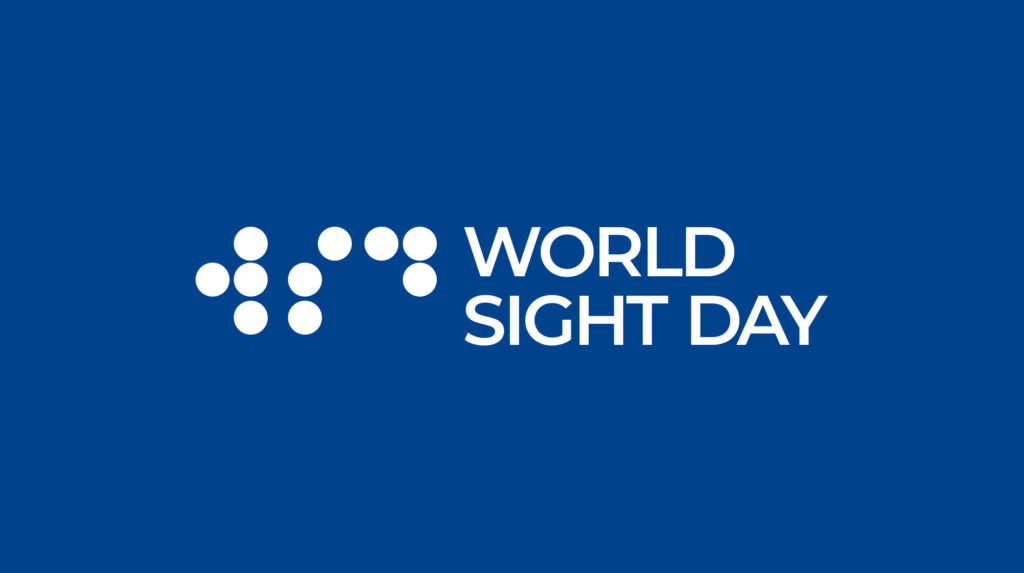
For the West African Health Foundation (WAHF), the fight against preventable blindness has always been a core mission. Cataracts and other eye conditions continue to impact millions across West Africa, but with the ongoing construction of the WAHF Eye Institute, WAHF is positioned to make a groundbreaking difference. This institute will provide much-needed eye care services, helping to restore sight to underserved communities.
The Importance of Eye Health in West Africa
West Africa is facing a significant eye health crisis, with cataracts being the leading cause of blindness. In a region where access to medical services is limited, untreated cataracts often result in irreversible vision loss, affecting individuals’ quality of life, productivity, and economic well-being. Several factors contribute to the rising prevalence of cataracts and other eye conditions:
- Ageing Population: The elderly population is more vulnerable to age-related eye conditions, including cataracts.
- Limited Access to Healthcare: Many rural areas lack essential eye care services, making it difficult for individuals to receive timely diagnosis or treatments.
- Environmental Factors: Exposure to intense sunlight and harmful UV rays, common in West Africa, accelerates the development of cataracts and other eye problems.
Although World Sight Day has passed, the issues it highlighted remain as urgent as ever. The need for investment in vision care services in West Africa cannot be overstated.
WAHF’s Vision for Change: The WAHF Eye Health Institute
The West African Health Foundation is taking decisive action to address cataract-related blindness through the construction of the WAHF Eye Institute in Ghana. Once completed, this state-of-the-art facility will revolutionise eye care in the region by offering affordable, quality treatment for thousands of people suffering from vision impairment.
Here’s why the WAHF Eye institute will be a game-changer:
- Affordable Eye Care: The institute will provide low-cost cataract surgeries and treatments, ensuring that even those in low-income communities can access care.
- Advanced Medical Equipment: With modern technology, the institute will significantly increase the number of surgeries performed, helping to reduce the backlog of untreated cases.
- Training for Eye Care Professionals: The institute will also focus on capacity building, training local ophthalmologists and optometrists to serve the community for years to come.
- Mobile Outreach Programs: By deploying mobile eye clinics, WAHF will extend its services to remote areas, providing screenings and treatments to those who cannot travel to the institute.
With construction 70% complete, the WAHF Eye institute is close to becoming a reality. However, more support is needed to finalise this vital project and bring life-changing eye care to West Africa.
World Sight Day 2024: A Global Effort for Vision Care
Though World Sight Day has come and gone, the messages shared continue to resonate globally. More than 2.2 billion people around the world live with vision impairment or blindness, with nearly half of these cases being preventable. Organisations like the World Health Organization (WHO) and the International Agency for the Prevention of Blindness (IAPB) have emphasised the importance of early detection and access to treatment.
In West Africa, where preventable blindness is common due to the lack of healthcare infrastructure, the need for facilities like the WAHF Eye institute is critical. Even after World Sight Day, WAHF remains dedicated to bridging the gap in eye care, offering real solutions to those suffering from cataract-related blindness.
How You Can Help
Although World Sight Day 2024 has passed, the mission to eliminate preventable blindness continues. The West African Health Foundation is actively seeking donations to complete the construction of the WAHF Eye institute and provide affordable eye care to those in need.
Your contribution can directly impact the lives of individuals suffering from preventable blindness. Every donation, no matter the size, helps bring us closer to completing this transformative project.
Join the cause and donate today to the West African Health Foundation. Together, we can restore sight to thousands of people in West Africa. Click here to donate.
While World Sight Day has helped raise global awareness about vision health, the work to combat preventable blindness in West Africa is ongoing. The completion of the WAHF Eye institute will mark a new chapter in the fight against cataract-related blindness, offering accessible, affordable eye care to communities that need it the most.
By supporting the West African Health Foundation’s efforts, you are helping to ensure that no one loses their sight due to a lack of access to care. Let’s continue the mission beyond World Sight Day and work together to create a future where everyone can Love Their Eyes.
